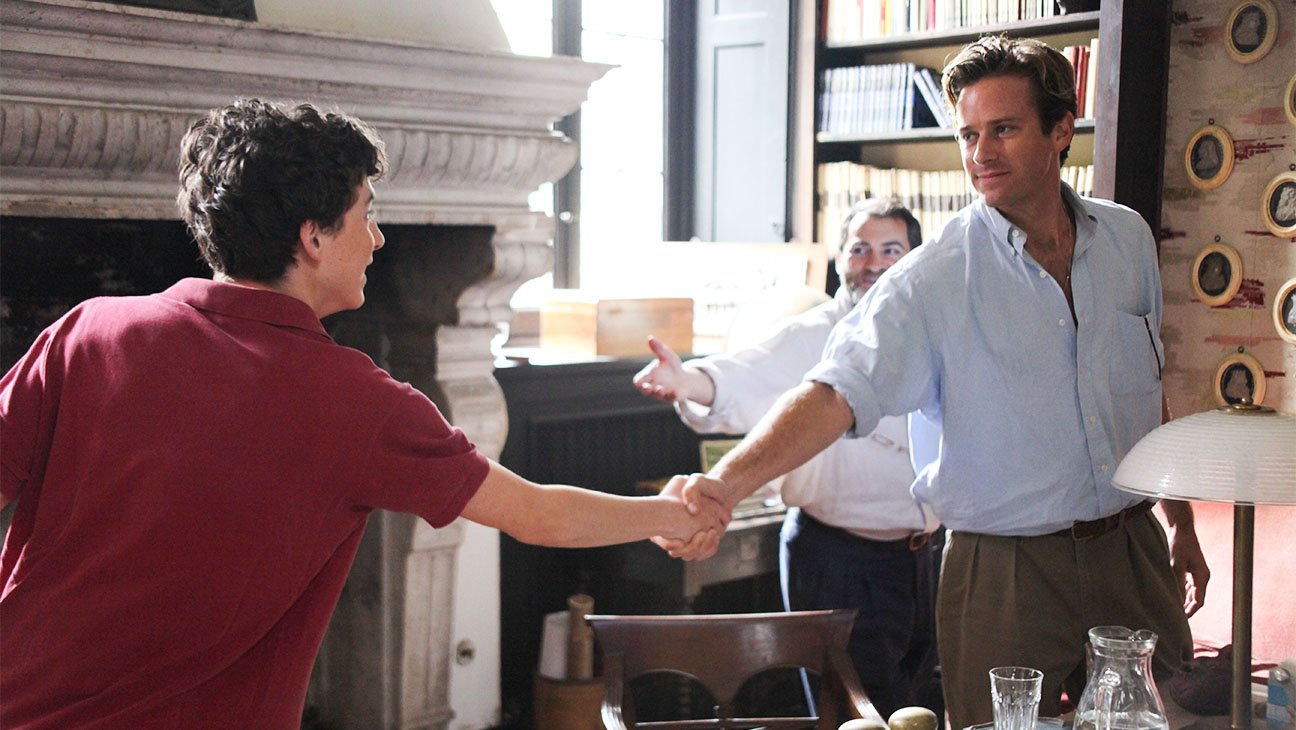Every romance has its own love language, but it takes only the rare kind to leave an impact on the audience that has them reeling long after the story is finished. Something similar happens with Luca Guadagnino’s ‘Call Me by Your Name,’ where a deep love develops between Oliver and Elio over the course of the summer that Oliver spends in Elio’s home in Italy. Their relationship takes its own course and is made a bit more complicated by the fact that both of them, at least initially, struggle to understand their feelings for one another. The belief that there might be something forbidden about them being together adds another layer to the story, but these doubts and questions do nothing to dull what they feel for each other. This is what the title alludes to. SPOILERS AHEAD
Call Me by Your Name Sums Up Elio and Oliver’s Relationship

There are several ways to describe being so deeply in love with someone that you can no longer separate them from yourself. In Greek mythology, there is the story of humans being born with four limbs but separated by Zeus, so now humans have only two, while the other half belongs to another body. This is one of the origin stories of the idea of a soulmate. In other words, it is two parts of the same soul residing in different bodies. In ‘Wuthering Heights,’ Catherine says, “Whatever our souls are made of, his and mine are the same,” while talking about Heathcliff. The list goes on and on, and ‘Call Me by Your Name’ adds itself as another entry by giving us the line Oliver says to Elio: “Call me by your name, and I’ll call you by mine.”
In essence, this is Oliver’s way of saying that he loves Elio so deeply that he doesn’t see them as separate entities anymore, which is interesting because the couple never really professes their love for each other in clear words. They never say “I love you” to each other but always skirt around that conversation, only understanding each other through subtexts. The one time that Elio hears “I love you” is from Marzia, and even that is not meant to sound like romantic love. So, by removing the phrase entirely from Oliver and Elio’s relationship, more weight is given to Oliver’s line, the only declaration in proper words, if there ever will be one.
The Songs Echo the Themes of Call Me by Your Name

This theme is echoed even in the music of the film, especially in Sufjan Stevens’ songs. One of the songs that Luca Guadagnino picked for the movie was ‘Futile Devices,’ which he revealed was simply because of the line, “It’s hard so I won’t say it at all,” which kind of sums up the thing between Oliver and Elio. This also resonates with the fairytale that Elio’s mother read to him and his father, where the question arose: “Is it better to speak or die?” It is especially difficult for Oliver to speak because, as an adult in the relationship, he is more in touch with his reality.
Despite his feelings and clear advances towards Elio, he tries to keep the teenager at bay, even though he relents eventually. Moreover, he comes from a place where he would be crucified for his sexuality, unlike Elio, whose parents are accepting, understanding, and loving. So, while it might be easy for Elio to articulate or act on those feelings, for Oliver, speaking those exact words that declare his love is a bit more challenging. But then, how does one say “I love you” without saying “I love you”?
In ‘Mystery of Love,’ which Sufjan Stevens wrote specifically for the movie, there is a mention of Hephaestion, Alexander’s lover. History might contend the exact nature of the relationship between the two (Alexander the Great and a general in his army), but the context of the song refers to the relationship between the two that was said to have been so deep that they’d been described along the lines of “two bodies one soul.” This reiterates the idea of love that Oliver shares with Elio, that they are now the same: Oliver is Elio, and Elio is Oliver. It seems like a cute thing to say in a romantic moment, but the dialogue holds more relevance after the romance ends.
The Relevance of “Call Me by Your Name” in the Last Scene

In the bliss of their romance, when the summer hasn’t yet ended, Oliver and Elio call each other by their names. When Oliver gives Elio the shirt he wore on the first day, he leaves a note that reads: “For Oliver, from Elio.” The more time they spend with each other, the more they feel like having fused together and calling each other by their names becomes their secret love language.
In the last scene, when Oliver calls after a few months and reveals the news of his engagement, Elio calls him Elio, and Oliver calls him Oliver. It is them saying “I love you” without having to say it, like a code between them. It is a reminder of their almost perfect summer and how, even though they have moved past it, they will both remember it. So, even if they meet years later and call each other by their names, it would show them that none of them have forgotten what transpired in that Italian summer of 1983.
It is because of the relevance that the phrase holds, not just as the title of the film but as its heart and soul, that it appears at the end of the movie when the audience knows the weight it holds for the characters. The director gives the audience time to process their and Elio’s feelings as we linger on the scene, Elio crying in front of the fireplace while the dinner table is laid out behind him. Interestingly, in the end, it is when Elio is called by his name by his mother that the credits and the scene finally come to an end. It’s like him being finally pulled back into reality, as if the summer has ended for him now, now that he doesn’t have Oliver to call him by his name.
Read More: Call Me by Your Name: Is the 2017 Movie Based on a True Story?


You must be logged in to post a comment.